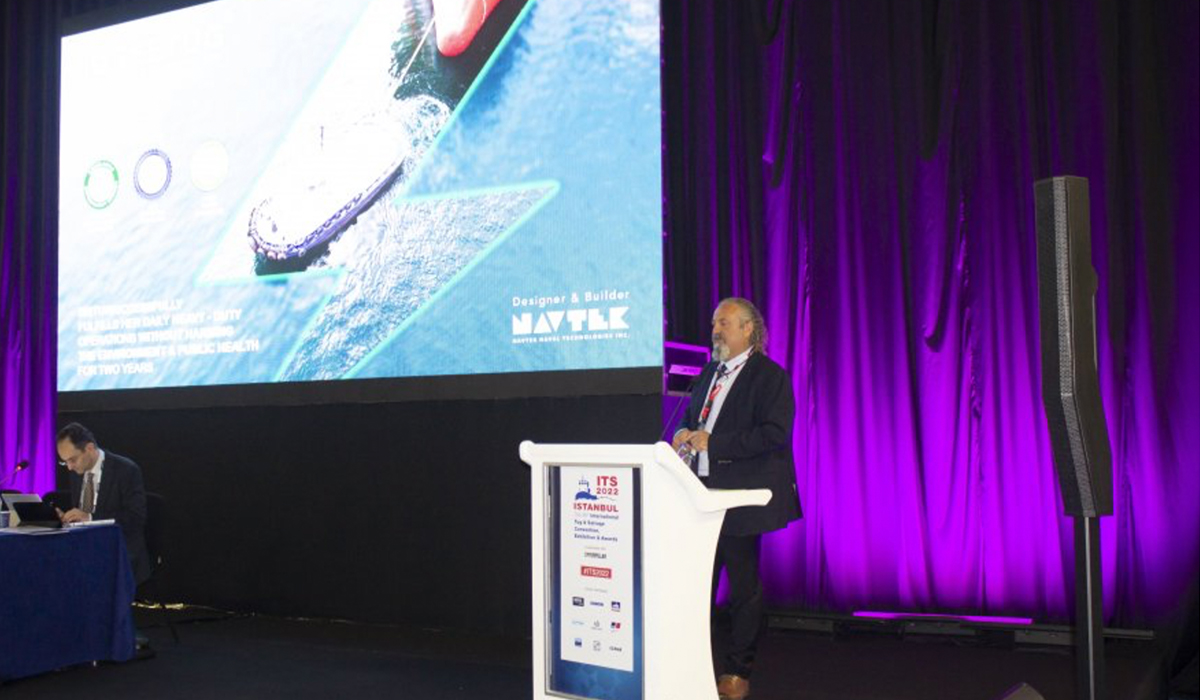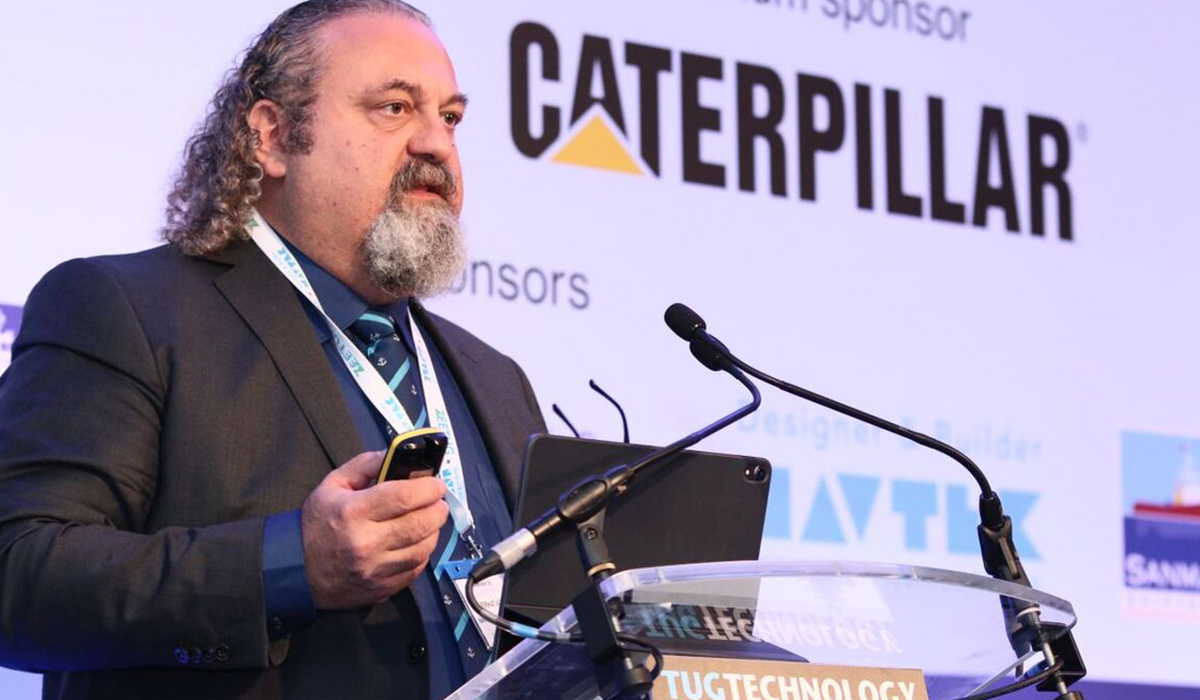In its 2.5 years of operation, all-electric Zeetug30 Gisas Power has reduced CO2 emissions by 446 tonnes and slashed fuel and OPEX costs compared with a traditional diesel-powered tug
These were some of the key takeaways from a presentation that examined zero-emissions tugs by Navtek Naval Technologies general manager Ferhat Acuner during Session 2 at ITS 2022, the 26th International Tug & Salvage Convention, Exhibition & Awards, held 28-30 September in Istanbul, Türkiye, in association with Caterpillar.
During Session 2, Operational Insights, Mr. Acuner was one of three presenters providing case studies detailing hydrogen, electric and autonomous technology focusing on voyage and vessel optimization and emissions reduction.
“If you want to reduce emissions at ports, you need to start with tugs and workboats,” Mr. Acuner pointed out. As evidence, he cited separate studies, with one conducted in the USA indicating tugs and workboats account for 58% of CO2 emissions, and another in Türkiye estimating that such vessels were responsible for 76% of CO2 emissions.

Mr. Acuner’s presentation, Hydrogen-powered, all-electric/hybrid tug, and Zeetug: 830 days of operation, showed that opex and maintenance costs were also greatly reduced. He said total fuel costs using an all-electric Zeetug30 were reduced by 50.27% when comparing MDO versus electric, and maintenance costs fell by 79%. He said the data was derived from comparing the Zeetug30 with a similar diesel-powered tug in the shipowner’s fleet.
Another revelation from Mr. Acuner at the session was regarding battery health. Based on the first 2.5 years of operation with the Zeetug30, he said battery health was over 99.5%. Original estimates suggested the battery life would be about 10 years based on the vessel’s operational profile. However, Mr. Acuner’s research and pending calculations suggest that based on operational results now, project battery life will be 15-18 years.
Faster than mobile phones
Another concern for vessel owners considering an all-electric tug is charging time. Navtek Naval Technologies has developed a new-generation fast-charging system, Quick Charge Station (QCS). Mr. Acuner said the QCS would charge an all-electric tug in 52 minutes – “faster than your mobile phones.”
Mr. Acuner highlighted one of Navtek’s newest zero-emissions projects, the Hydrotug60, which would combine a hydrogen fuel cell with li-ion batteries for a 60-tonne bollard pull tug. The hydrogen storage on the vessel is class approved. Expectations are that construction of the first Hydrotug60 will begin in H2 2023 designed for an undisclosed particular port operation.











